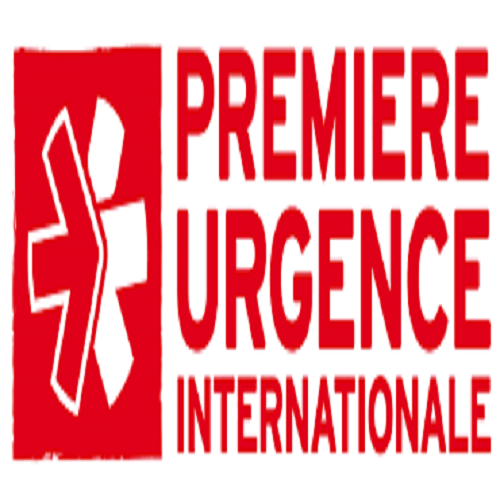Grants And Communication Manager-Première Urgence عودة إلى الفرص
Première Urgence Internationale
يطلق Offre d'emploiانتهاء الصلاحية
30 سبتمبر 2021 Il y a 4 ans
شارك الفرصة على
تفاصيل الفرصة
Context
Première Urgence Internationale (PUI) is a non-governmental, non-profit, non-political and non-religious international aid organization.
Our teams are committed to supporting civilians’ victims of marginalization and exclusion, or hit by natural disasters, wars and economic
collapses, by answering their fundamental needs. Our aim is to provide emergency relief to uprooted people in order to help them recover
their dignity and regain self-sufficiency. The association leads on average 200 projects per year in the following sectors of intervention:
food security, health, nutrition, construction and rehabilitation of infrastructures, water, sanitation, hygiene and economic recovery. PUI is providing assistance to around 7 million people in 22 countries –in Africa, Asia, Middle East, and Europe. PUI Libya mission started implementing operations in East of Libya in 2017. The organization develop a lifesaving response that provides primary health care services to the most vulnerable population (internal displaced populations and their host communities, migrants, refugees and asylum seekers) combined with an integrated basic needs response to address the overall health situation of the PoC in detention centers and in urban settings.
General Context :
Libya, a mostly desert and oil-rich country with an ancient history, has more recently been known for the 42-year rule of the mercurial Colonel Muammar Gaddafi -and the chaos that has followed his departure (BBC, 2019). The country has splintered, and since 2014 has been divided into competing political and military factions based in Tripoli and the east. Among the key leaders are Prime Minister Fayez Sarraj, head of the internationally-recognized government in Tripoli, Khalifa Haftar; leader of the Libyan National Army, which controls much of eastern Libya; Aghila Saleh, speaker of the House of Representatives based in the eastern city of Tobruk; and Khaled Mishri, the elected head of the High State Council in Tripoli.
Humanitarian consequences:
Libya continues to struggle to cope with the effects of ongoing conflict and insecurity, an economic and governance crisis and the impacts of COVID-19. In 2020, around 2.5 million people have been the most affected, with 1.3 million people having the most severe needs and requiring humanitarian assistance. This is the result of a deterioration or partial collapse of living standards and basic services, an increased reliance on the use of negative coping strategies and widespread grave violations of human rights and significant impact on physical and mental wellbeing.
Despite the crisis, Libya remains an attractive destination for migrant workers due to an economy that relies on foreign labour, higher salaries and historical ties, as well as being a transitory route for people seeking opportunities or asylum in Europe. An estimated 655,000 refugees and migrants are in Libya, including 48,000 registered refugees and asylum seekers. However, refugees and migrants continue to be exposed to protection risks, human rights violations, exploitation and abuse (HNO, 2021).
PUI’s strategy/position in the country and current programs :
- The main programmatic objectives of PUI can be synthetized as follows:
Enhance protection environment and access to essential services for conflict-affected communities in Libya. - Provide life-saving assistance by ensuring a safe and dignified access to health services as well as an access to clean water, basic sanitation facilities and hygiene items for the affected families in Detention Centers.
- Improve the quality of the health services provided to the people through the national health facilities.
History of the mission and current programs
PUI Libya mission started implementing operations in East of Libya in 2017. The organization has developed a lifesaving response that provides primary health care services to the most vulnerable population (internal displaced populations and their host communities, migrants, refugees and asylum seekers) combined with an integrated basic needs response to address the overall health situation of the PoC in detention centres and in urban settings. As a result, after three years of experience, PUI is now positioning as a significant actor targeting all groups of population in various settings in all eastern Libya. Its constant and solid field presence enables the organization to
develop strong relationships with key stakeholders (authorities, local community leaders and local and international NGOs), as well as acceptance in reference to the activities implementation. In 2020, 2 Mobile Health Teams were deployed in Al Kufra and 1 in Detention centers in Eastern Libya. PUI is implementing an integrated approach, with Protection and MHPSS specialist embedded in each MHT.
Additionally, PUI is working on the reinforcement of the health system through training and capacity building project for health professionals, and the rehabilitation of health facilities. In 2021, the mission will implement 2 projects funding by AICS and ECHO/SDC.
Title:Libya Equal Access and Development for Recovery: enhancing access to health services (AICS) in Al Kufra, Benghazi and Al Bayda
Title: Enhance protection environment and access to essential services for conflict-affected communities in southern Libya.
(ECHO / SDC) in Al Kufra
To note, due to the administrative context, the majority of the humanitarian intervention in Libya are being managed remotely from Tunis.
انتهت صلوحية الفرصة
للأسف هذه الفرصة لم تعد موجودة على جمعيتي . زوروا بانتظام قسم الفرص لتجنب افلات الفرص اللاحقة
تابع "جمعيتي" على لينكد إن
احصلوا على جمعيتي موبايل من الآن

عرض شغل منشور على "جمعيتي" في 2 septembre 2021
إكتشف المزيد من الفرص على "جمعيتي" عبر النّقر على هذا الرّابط.








